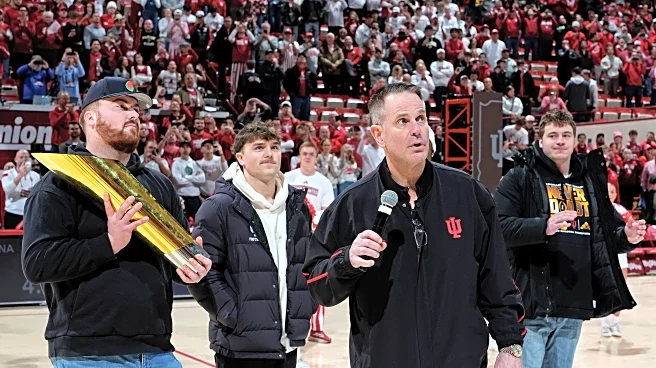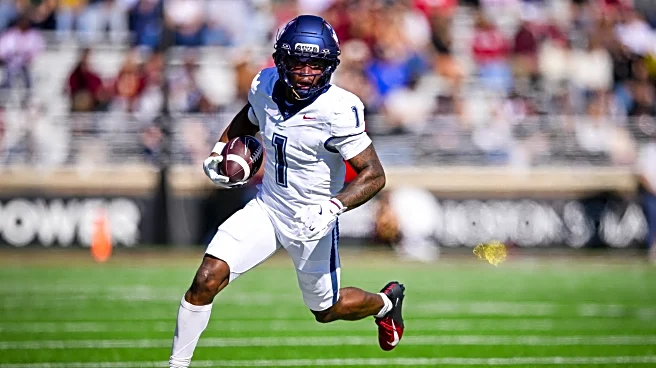What's Happening?
Virginia Tech is currently facing financial limitations in its search for a new head football coach. The Athletic's Manny Navarro reports that the Hokies are unlikely to secure Shane Beamer, the current South Carolina coach and a Virginia Tech alum, due to his high salary and buyout clause. Beamer's contract includes an $8.15 million salary with annual raises and a $5 million buyout, making it financially challenging for Virginia Tech to hire him. Instead, the Hokies are considering candidates from the Group of Five ranks, such as Curt Cignetti from Indiana, Kenny Dillingham from Arizona State, and Fran Brown from Syracuse. Alex Golesh, a rising star at South Florida, is also mentioned as a potential candidate, although he is likely to be considered for higher-profile positions in the SEC or Big Ten.
Why It's Important?
The financial constraints faced by Virginia Tech highlight the challenges smaller programs encounter in competing with larger, more financially robust schools. The inability to attract high-profile coaches like Shane Beamer or Alex Golesh could impact the team's performance and competitiveness in the ACC. This situation underscores the growing influence of financial resources in college sports, particularly in the recruitment and retention of coaching talent. Programs with limited budgets may struggle to keep pace with schools that can offer lucrative contracts and substantial NIL deals, potentially affecting their long-term success and fan engagement.
What's Next?
Virginia Tech will likely continue its search for a head coach within its financial means, focusing on promising candidates from the Group of Five or lower-tier Power Five programs. The Hokies may need to explore creative financial solutions or increase their NIL spending to become more competitive in attracting top coaching talent. As the coaching carousel progresses, Virginia Tech's decisions will be closely watched by stakeholders and fans, who are eager for a turnaround in the team's fortunes.
Beyond the Headlines
The situation at Virginia Tech reflects broader trends in college athletics, where financial disparities between programs can lead to significant competitive imbalances. The increasing importance of NIL deals and large coaching contracts may drive further consolidation of talent among wealthier programs, potentially reshaping the landscape of college sports. This could lead to ethical and cultural discussions about the role of money in collegiate athletics and its impact on student-athletes and smaller institutions.









